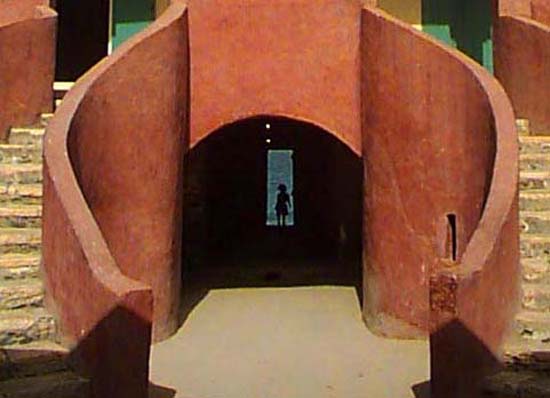
Zimbabwe RPCV Debra Harley created program to link youth to their history in Africa
Program offers youths link to their history
Thursday November 27, 2003
By John Pope
Staff writer
When Debra Harley traveled to Zimbabwe eight years ago, the New Orleans teacher expected to spend five weeks studying the African country's history and culture.
But that trip provided much more than material for a program she was preparing. That journey, which Harley made on a Fulbright grant, provided the inspiration for a continuing initiative that would send middle- and high-school students to Africa so they would be exposed to life far from home.
It would be, she said, "a junior Fulbright experience, where you're immersed in the culture."
That germ of an idea became Kids-to-Afrika Inc., better known as KTA, which launched its first trip, to Senegal, in 1997.
The most recent group embarked Friday for Ghana. The 17 students on KTA's sixth trip are to return Dec. 2.
Harley, a former Peace Corps volunteer who teaches kindergarten and first grade at Audubon Montessori School, is the program's volunteer director.
The nonprofit group, which uses a spelling of the continent's name found on old maps, settled on Africa as a destination because the first travelers were all African Americans, Harley said. "We wanted them to have a link to their history and culture beyond textbooks."
On that trip, when students walked through a slave dungeon's Door of No Return, from which shackled Africans boarded ships to America, "their history became real," Harley said.
"This is an educational odyssey," she said. "You have to leave home to know more about the world."
The learning never seems to stop. The students, some of whom have never ventured beyond Louisiana, are up at 6 a.m. and out the door of their hotel two hours later, visiting schools, museums and crafts villages. And every night, they discuss the day's activities and record their thoughts in journals.
This year, for the first time, the KTA group and their young hosts will be discussing AIDS, which has been especially devastating in sub-Saharan Africa.
"Because this is a global problem, we wanted to address it and dispel myths and raise awareness," said LaVerne Price, the chairwoman of KTA's board.
The young Americans have been taught the basics about AIDS and other sexually transmitted diseases, Price said, and they traveled to Ghana with educational pamphlets and other information they will discuss with their hosts.
In addition to these formal sessions, participants in previous KTA trips have been able to spend time and develop friendships with youngsters their own age.
On KTA's Web site, Akita Evans-Benjamin wrote about girls in Dakar, Senegal, who offered to braid the visiting girls' hair for free, even though it was a tedious task that took hours. The African girls told the Americans that they were passing on something that had been done for free for them.
"They made ties with us that should never be broken," Evans-Benjamin wrote. "We learned that . . . we must help our sisters out even when it might be inconvenient for us."
Even though the New Orleanians will be soaking up African history and culture, they will have a touch of home today, Price said, because they will prepare a traditional Thanksgiving dinner.
Participants must be 12 to 16 years old. Each prospective traveler must submit an application and two recommendations from teachers, complete a survey, attend an orientation session, write a 250-word essay and be interviewed by KTA board members.
The cost per student is $2,500. Parents pay about one-third, Harley said, and the rest comes from foundations, grants and donations.
Fund-raising has been difficult, Harley said, not only because New Orleans is a poor city but also because some people are dubious about the program's value.
"They see the experience as fluff," she said. "It doesn't increase test scores."
But a factor that can't be measured -- the participants' transformation when they return -- has been amazing, Price said.
"It's an awesome activity," she said. "It's almost like they started out in a cocoon state. I've watched the young kids blossom into little butterflies."
More information is available at members.tripod.com/(DIAMOND)kids2afrika/, the organization's Web site.
. . . . . . .
John Pope can be reached at jpope@timespicayune.com or at (504) 826-3317.
